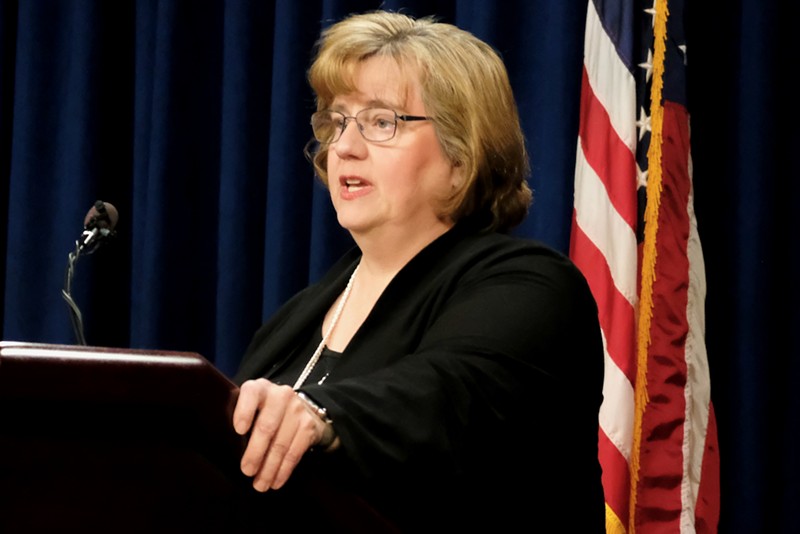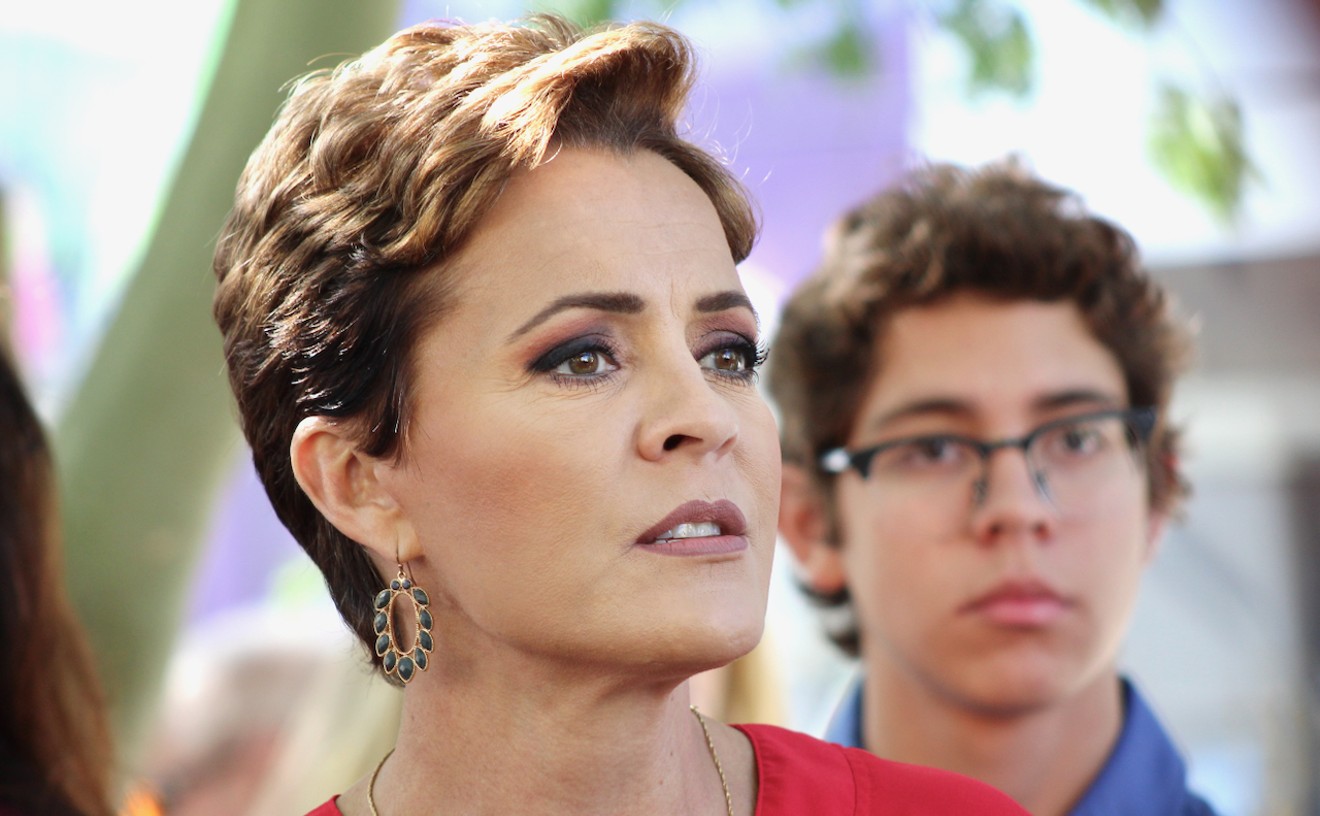Hobbs said the ruling will allow the state to continue its review of how it conducts executions.
"The Arizona Supreme Court decision yesterday affirms our position and allows the Arizona Department of Corrections to ensure any execution conducted under this administration will be done lawfully and humanely," Hobbs said in a statement on March 23.
Maricopa County Attorney Rachel Mitchell, who argued that the court should compel Hobbs to carry out the execution, said she’s considering further action.
“With this ruling, the court recognizes that the Governor’s actions have constitutional implications, and the Governor has a duty to follow the law. We are assessing next steps to ensure the law is upheld and victims receive justice,” Mitchell said in a prepared statement.
****
Maricopa County Attorney Rachel Mitchell is asking the Arizona Supreme Court to force the state to execute Aaron Gunches — despite Governor Katie Hobbs's attempt to pause the death penalty in Arizona.
Mitchell filed a brief in the ongoing Gunches case on March 13, arguing that since a warrant was already issued for Gunches's death, the state must now execute him. The state's high court is now considering the request.
In 2004, Gunches pleaded guilty to the 2002 kidnapping and first-degree murder of Ted Price, the ex-husband of Gunches’ then girlfriend. Four years later, Gunches was sentenced to death. That ruling would eventually be briefly overturned before being reinstated again in 2013.
Now, his case has become a battle over the future of the death penalty in Arizona, pitting Mitchell and conservative lawmakers against the state's new governor and attorney general. Gunches, 51, has a clemency hearing on March 23. His execution is scheduled for April 6.
In a statement accompanying her brief, Mitchell said her intervention in the case, which her office prosecuted, "recognizes and supports the right of victims to a 'prompt and final conclusion of the case.'"
In a statement accompanying her brief, Mitchell draws from the Arizona Victims Bill of Rights and said her intervention in the case "recognizes and supports the right of victims to a 'prompt and final conclusion of the case.'" Mitchell's office prosecuted Gunches.
In court pleadings filed on March 15, Hobbs argued that the state was currently incapable of carrying out the death penalty. "The State is in no position to conduct an execution on April 6, 2023," the pleadings said.

Aaron Gunches faces the death penalty for the 2002 murder of Ted Price.
Arizona Department of Corrections
An Unusual Case
Gunches’ nearly 20-year case has been littered with a series of retractions.On November 25, Gunches filed a motion asking that an "immediate death warrant" be issued, "so that justice may be lawfully served and give closure to the victim's family."
At the time, Mark Brnovich, who made the death penalty a priority, was Arizona's attorney general. In May 2022, Brnovich restarted executions in the state after an eight-year hiatus and oversaw three executions in a period of several months before he left office.
After Gunches filed his motion requesting a death warrant, Brnovich supported it. But before the Arizona Supreme Court could consider issuing the warrant — which sets a date for an execution — Gunches changed his mind and filed a motion rescinding his request. Brnovich left office.
Brnovich was replaced by Kris Mayes, a Democrat who had expressed concerns about Arizona's executions. On January 20, shortly after she was sworn in, Mayes withdrew her office's motion for a death warrant and announced that she would not be seeking any new death warrants until a review of executions in Arizona was completed.
On the same day, Hobbs announced her plans to appoint a commissioner to review the death penalty in Arizona. On February 24, retired federal judge David Duncan was selected to oversee the process.
Yet, the Arizona Supreme Court issued a death warrant for Gunches on March 2.
Hobbs Vows Not to End Executions
Hobbs has vowed that the state will not carry out Gunches’ execution, regardless of the warrant. "Under my administration, an execution will not occur until the people of Arizona can have confidence that the State is not violating the law in carrying out the gravest of penalties," she said on March 3, the day after the warrant was issued.Despite this, Mitchell has petitioned the court to order Hobbs to uphold Gunches’ death sentence.
On March 10, after Hobbs announced her intention not to execute Gunches, Karen Price, the sister of the man killed by Gunches, requested that the court force the governor to move forward with his execution. Mitchell intervened in support of Price.
Mitchell's brief argues that Hobbs and the new Arizona Department of Corrections director, Ryan Thornell, "are threatening to proceed without legal authority and failing to perform a duty — the lawful execution of Aaron Brian Gunches on April 6, 2023 — as required by law."
"No law authorizes the governor to unilaterally refuse to enforce a sentence," the brief continued.
Mitchell’s request is supported by other prominent Arizona Republicans. On March 13, Arizona Senate President Warren Petersen and House Speaker Ben Toma filed a brief supporting the position of Price and Mitchell.
"It's incredibly disturbing to see [the governor and the attorney general] unwilling to enforce the law and are siding with the most vile individuals convicted of the most heinous crimes in our state," Petersen said in a statement.
Still, Hobbs is not backing down and argues that just because the court has issued a death warrant for Gunches does not mean the state must carry it out. "The warrant authorizes an execution and does not require it," she said in her March 3 statement.
Hobbs cited longstanding issues with the Arizona prison system — including its executions — as her rationale behind pausing the death penalty. "Being adequately staffed and prepared to carry out an execution is just one of many urgent and critical duties ADCRR [Arizona Department of Corrections, Rehabilitation, and Reentry] faces concurrently," she said. "Getting the department to that point will take time."










